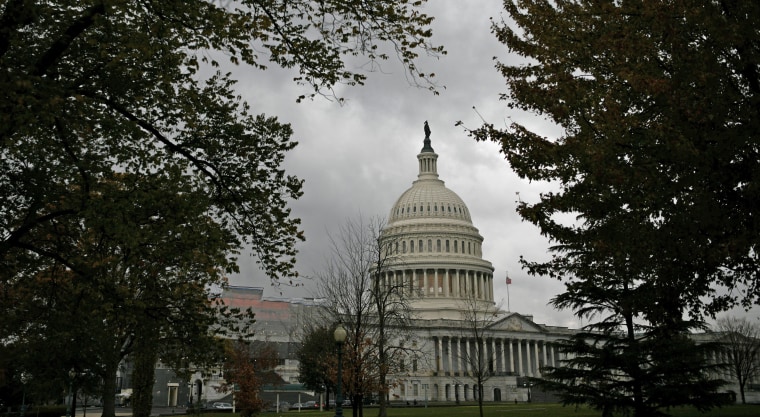The first congressional response to the coronavirus crisis came two weeks ago, with lawmakers approving a relatively modest $8.3 billion emergency bill, focused on public-health infrastructure. Almost immediately thereafter, House Speaker Nancy Pelosi and Treasury Secretary Steven Mnuchin negotiated a second package, called the Families First Coronavirus Response Act, which has run into a little trouble.
The package -- which provides funding for free coronavirus testing, enhanced unemployment insurance, food assistance, and limited paid leave -- passed the House just after midnight on Saturday morning, overcoming opposition from 40 Republicans. The chamber passed the $100 billion proposal again on Monday, adding a technical fix that was omitted from the original version.
The expectation was that the Senate would act soon after, and Senate Majority Leader Mitch McConnell (R-Ky.) agreed to pass the House bill, despite GOP concerns about its merits. Referring to his party's members, McConnell said yesterday, "My counsel to them is to gag and vote for it." The Republican leader added that his plan was to move at "warp speed."
Sen. Rand Paul (R-Ky.) had a different approach in mind.
Senate Majority Leader Mitch McConnell said the Senate would move at "warp speed" to pass coronavirus legislation Tuesday, but Sen. Rand Paul, his fellow Kentucky Republican, put a damper on those plans, two leadership sources told NBC News. Senators were heading toward a vote Tuesday on the package ... but they had to slam on the brakes because of an amendment Paul proposed.
According to NBC News' report, Paul wants a vote on an amendment that would "require a Social Security number for purposes of the child tax credit, and to provide the President the authority to transfer funds as necessary, and to terminate United States military operations and reconstruction activities in Afghanistan."
The measure is not expected to pass, but Paul has an unfortunate habit of engaging in performative, self-indulgent displays like these. (Note, when the Senate approved the $8.3 billion emergency measure on March 5, it passed 96 to 1 -- and Rand Paul was the only "no" vote.)
As things stand, the plan for today is for the Senate to reject the Kentucky senator's amendment, pass the House bill, and send it to the White House for Donald Trump's signature. While these steps unfold, work is well underway of Congress' third legislative response, which is likely to be vastly larger. Politico reported last night:
Treasury Secretary Steven Mnuchin made a pitch for the initiative at a lunch with Senate Republicans on Tuesday, part of an $800 billion-plus package being floated by the White House that also includes as much as $250 billion in emergency loans for small businesses being hit by the economic slowdown. Under the Mnuchin plan, direct payments -- on a means-tested basis -- could be sent to American via the IRS as early as next month, although even that may not be as fast as some in Congress want.
In terms of the price tag for the next legislative response, there are a lot of numbers being circulated, with some reports pointing to a White House-backed plan costing as much as $1.2 trillion.
Look for some kind of announcement on a more detailed blueprint later today.
